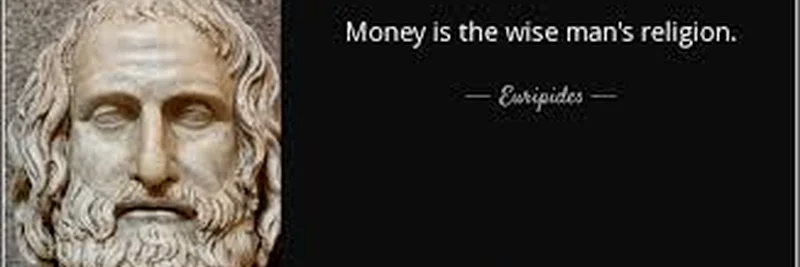In the ever-evolving world of cryptocurrency, where communities form around tokens like modern-day tribes, a thought-provoking thread from @hmalviya9 on X has sparked discussions about money as a "religion" and the critical role of privacy. Posted on November 17, 2025, the thread explores how true sovereign money needs to be private, tracing the journey from Bitcoin's early promise to emerging alternatives like Zcash, and even hinting at a fragmented future of digital cash.
Bitcoin's Pseudonymous Roots and Lost Privacy
The thread kicks off with a powerful image quoting Euripides: "Money is the wise man's religion." It sets the stage for arguing that sovereign money—digital currency free from centralized control—must inherently be private. Bitcoin, often hailed as the original digital gold, started as pseudonymous, meaning transactions are traceable via public ledger but not directly tied to real-world identities without extra effort.
However, as governments and regulators caught up, Bitcoin's privacy features have been eroded. Tools like chain analysis software now allow tracking of Bitcoin trails, diminishing its appeal as untraceable money. This shift, according to the post, began around 2016 when the Bitcoin community dismissed ideas like programmability—features that Ethereum's Vitalik Buterin championed. Since then, Bitcoin has seen more division than unity, with debates over upgrades stalling progress.
For those new to crypto, pseudonymity differs from anonymity: In Bitcoin, your wallet address is like a public bank account number—visible to all, but not necessarily linked to your name unless you reveal it.
Zcash Emerges as the Privacy-Focused Alternative
Enter Zcash, which the thread positions as a potential successor to Bitcoin's throne. Zcash uses advanced cryptography called zk-SNARKs (zero-knowledge succinct non-interactive arguments of knowledge) to enable fully private transactions. This means you can prove a transaction occurred without revealing amounts, senders, or receivers— a step up from Bitcoin's transparency.
The post notes that many Bitcoin "OGs" (original gangsters, or early adopters) have sold their BTC to pivot to Zcash, seeing it as the "emerging religion." But challenges loom: With rapid advancements in privacy tech, Zcash might not stay dominant. The crypto space is notorious for its forks and factions, leading to multiple competing privacy coins.
This resonates deeply with meme token enthusiasts. Meme coins like Dogecoin or newer ones on Solana often build cult-like followings, where community loyalty drives value more than tech alone. If privacy becomes a must-have, imagine privacy-enhanced meme tokens rallying tribes around secure, untraceable fun.
The Path to Crypto Anarchy and Fragmented Digital Cash
The thread warns of a future with 4-5 competing digital cash systems, each with devoted tribes defending their superiority. This fragmentation stems from crypto's decentralized nature—no single authority dictates the "one true money." As trust in governments wanes amid global protests, demand for private money could skyrocket.
This setup paves the way for "crypto anarchy," a concept where technology, not laws, secures freedom and privacy. It could birth new governance models, free markets, and communities unbound by traditional borders. But success hinges on finding "order" within these religions—something the post ties to building reputation systems in crypto.
Without reputation tied to privacy, order fails, and the money loses value, much like ancient brass coins gathering dust today. For meme tokens, this is a wake-up call: Strong communities need tools for trust and reputation, perhaps through on-chain social proofs or decentralized identities.
Implications for Meme Token Communities
While the thread focuses on established coins like Bitcoin and Zcash, its ideas apply perfectly to meme tokens. These viral assets thrive on hype, memes, and tribalism—essentially mini-religions. Privacy could supercharge them, allowing anonymous participation in pumps or DAOs (decentralized autonomous organizations) without fear of tracking.
Yet, as the post implies, without order—via reputation mechanisms—meme tokens risk fading like forgotten fads. Builders in the space should consider integrating privacy features, like those in Monero or emerging layer-2 solutions, to create sovereign, private meme economies.
If you're diving into meme tokens, keep an eye on projects blending privacy with community vibes. It's not just about the laughs; it's about building lasting digital sovereignty.
Check out the original thread for the full discussion, including replies from users debating crypto's excitement and religious undertones. As crypto evolves, one thing's clear: Privacy isn't just a feature—it's the foundation of the next money religion.




